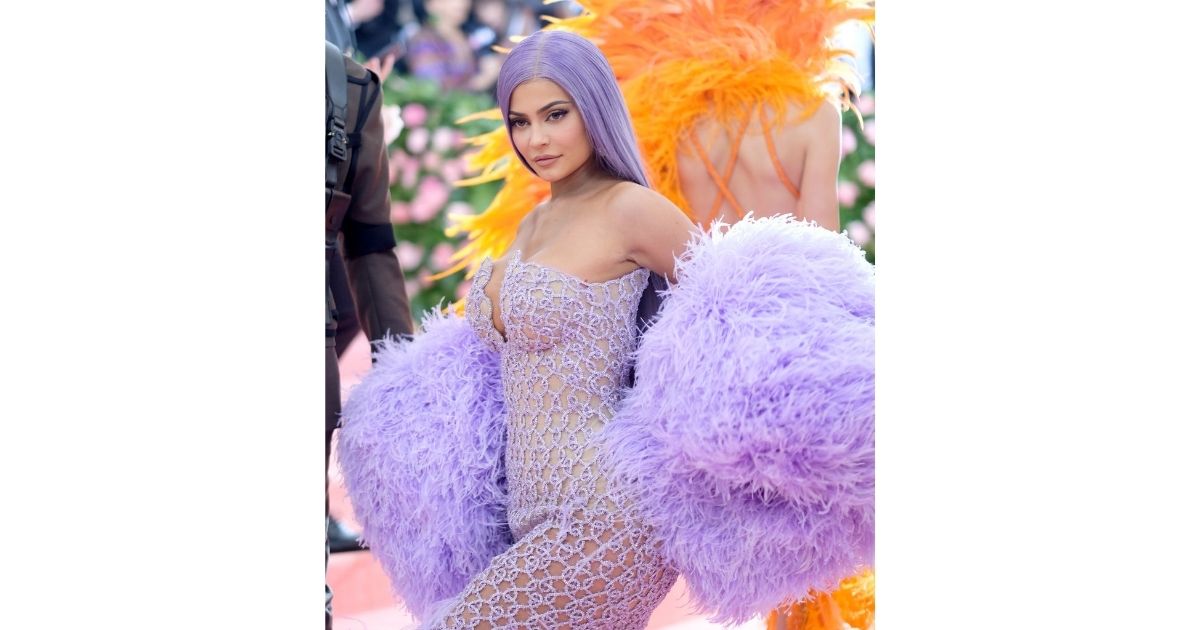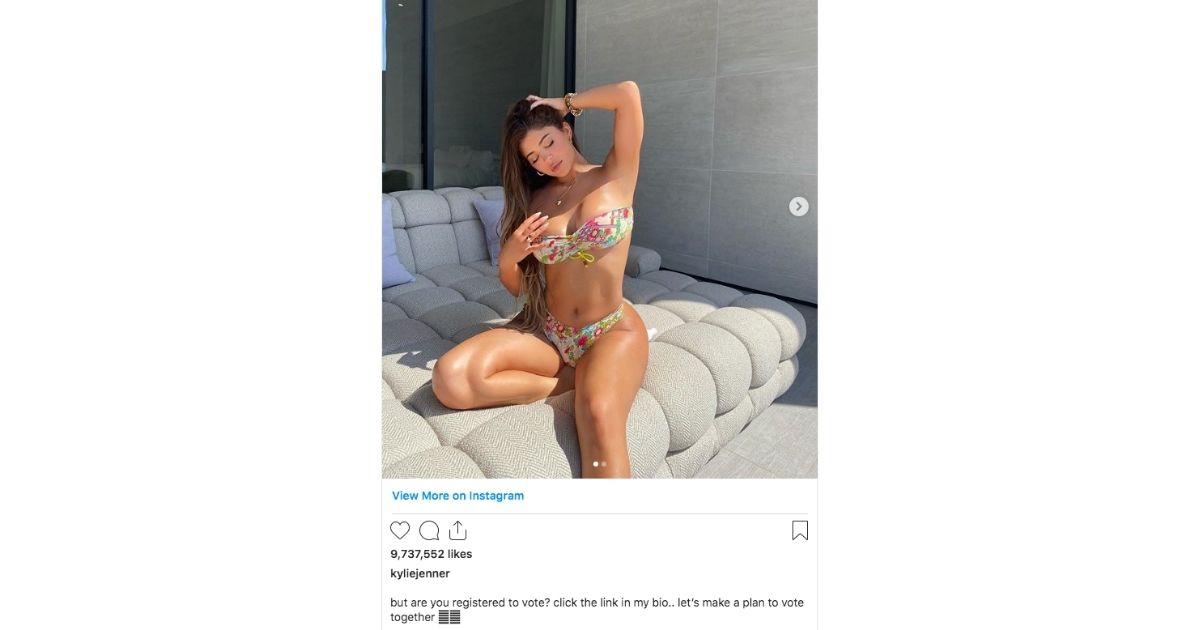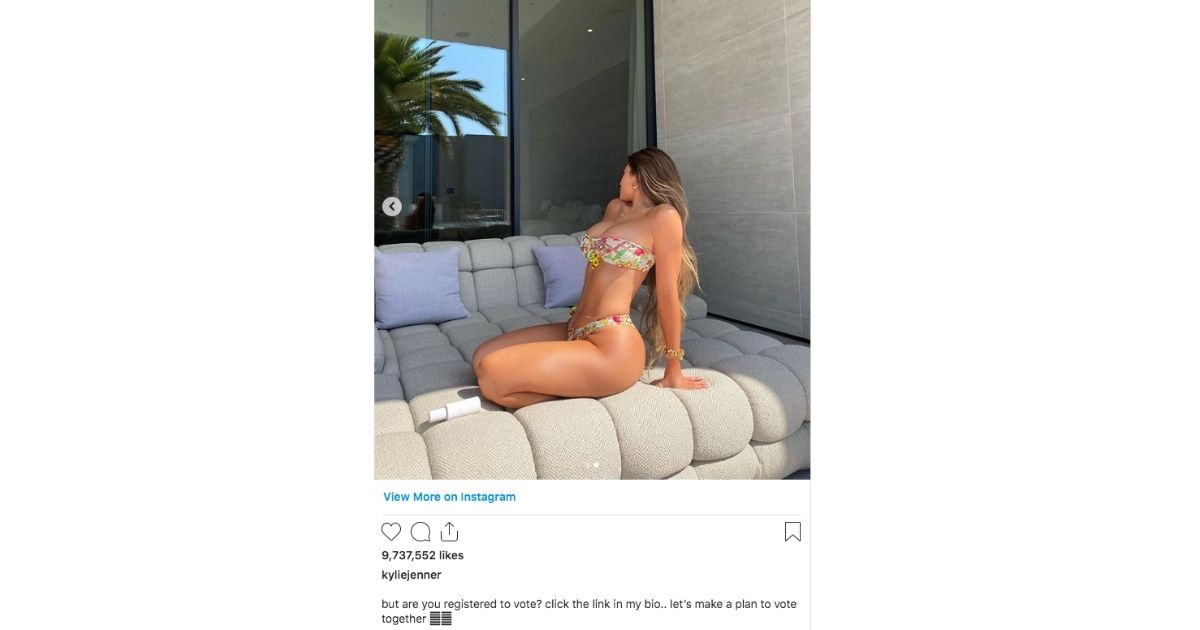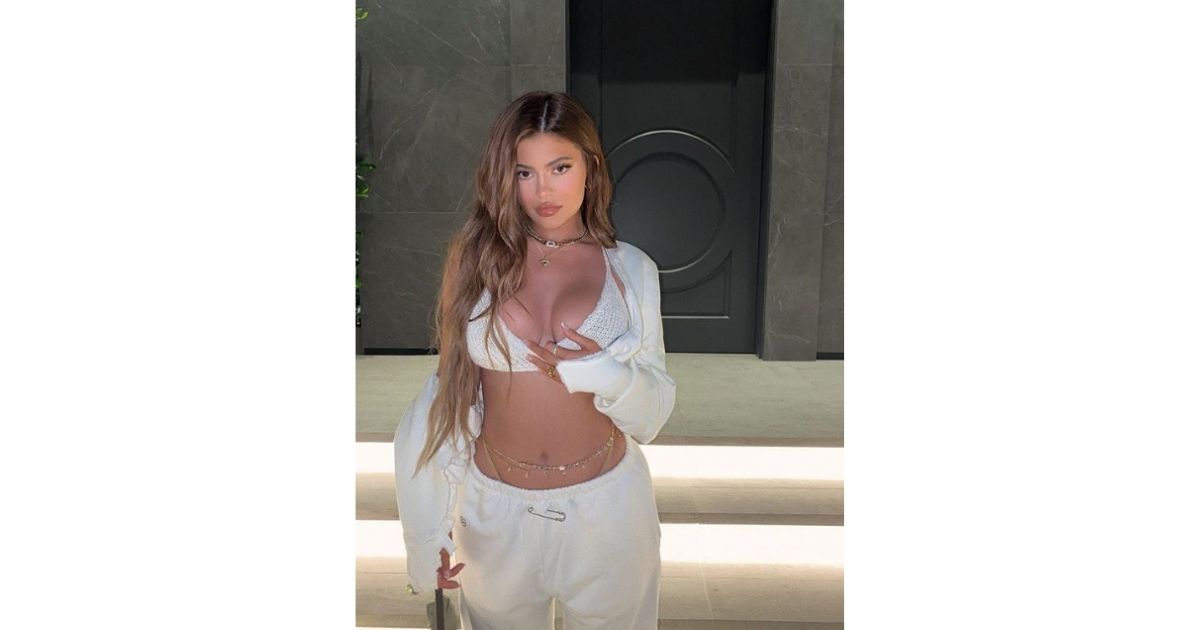On Monday, September 28, Kylie Jenner went to Instagram to share photos of herself posing in a bikini, knowing she’d capture the attention of her 196 million followers and probably a few thousand others through the activity feed and discover pages.
Moments after she posted the snaps, it gathered more than nine million likes, and while bikini photos are not new for her account, the particular images she shared came with an important message which is to vote.
“But are you registered to vote? click the link in my bio.. let’s make a plan to vote together,” Kylie captioned the photos.
The link on Kylie’s account directed users to the Vote.org website, which allows people to check their registration status, and following her post, the site saw a mind-blowing 1500% boost from traffic driven via Instagram.
Vote.org recorded an 80% increase in total users of its voter registration and verification tool from the prior day, TMZ reported. The figures translate to more than 48,000 users going to the site through Kylie’s profile.
On Sunday, a total of 174,000 people used the verification tool, of which 2,900 were from Instagram, indeed Kylie’s bikini photos had an impact on encouraging people to visit the voting site.
Kylie Jenner is one of the A-list celebrities who have used social media to try and get people to register and vote ahead of the November 3 election, and figures already suggest the result will be much stronger than in previous years.
Out of a total of 328 million Americans, only 138 million cast a vote in the 2016 election. This 2020, with more than a month still to go until election day, more than one million Americans have already voted in what is the highest rate of early voting in US history.
“We’ve never seen so many people vote this far in advance of a presidential election before. We are in uncharted territory,” Michael McDonald, a political science professor at the University of Florida said in The Independent.
In 2016 only 9,525 people had voted.
Election observers believe the surge has been driven by new state laws designed to help people vote safely during the current pandemic, though the data also suggest greater voter interest in what is one of the most divisive elections in generations.







